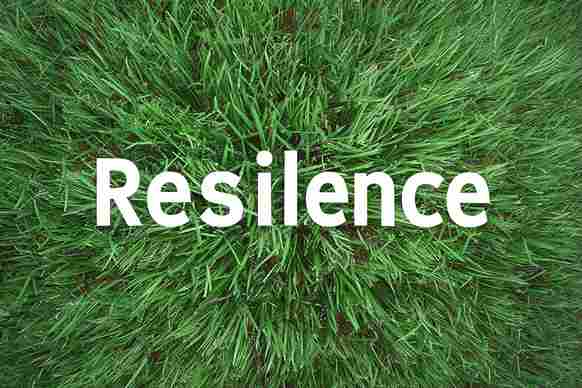Why Resilience Is Important For Students? It’s important to understand why resilience is important for students, as it enables psychologists to effectively support their development.
Resilience provide students with skills to manage stress, bounce back from setbacks, and thrive in academic and personal challenges.
It promotes mental health, dedication, and prepares them for future success, ultimately contributing to their overall well-being and fulfillment.
If you’re a student, this blog post is for you. We’ll explore why resilience is important for students and how to develop it.
What Is Resilience In Psychology?
Resilience in psychology means being able to bounce back from tough times without breaking. It’s like having a strong rubber band that stretches but doesn’t snap.
Resilient people can handle challenges, recover from setbacks, and sometimes even grow stronger.
Types of Resilience
Emotional Resilience – This is about managing emotions during hard times.
Social Resilience – This is about keeping up good relationships and asking for help when needed. If a student faces pressure, they might talk to friends or family for support instead of feeling alone.
Cognitive Resilience – This means being able to think flexibly and solve problems.
Physical Resilience – This is about staying healthy despite physical challenges.
Community Resilience – This involves people coming together to support each other during tough times.

Why Resilience Is Important For Students?
1. Resilience equips students with the ability to effectively manage stress and pressure, enabling them to stay focused and productive.
2. Students face numerous transitions in their academic journey, and resilience helps them adapt to new environments, routines, and expectations.
3. Resilience empowers students to bounce back from failures and setbacks, turning them into opportunities for growth and learning.
4. Through resilience, students develop confidence in their abilities to tackle challenges and achieve their goals.
5. Resilience acts as a protective factor against mental health issues such as anxiety and depression, fostering emotional well-being.
6. Resilient students demonstrate perseverance in the face of obstacles, refusing to give up on their aspirations.
7. Resilience fosters a problem-solving mindset, enabling students to approach difficulties with creativity and resourcefulness.
8. Resilience encourages independence and self-reliance, empowering students to take ownership of their academic and personal growth.
9. esilient students maintain a positive outlook, seeing setbacks as temporary challenges rather than insurmountable barriers.
10. Resilience fosters healthy relationships by promoting empathy, communication, and conflict resolution skills.
11. Resilient students are more willing to take calculated risks, knowing that setbacks are part of the learning process.
12. Resilience helps students regulate their emotions effectively, preventing them from being overwhelmed by stressors.
13. Resilient students engage in self-reflection, learning from past experiences and continuously striving for personal growth.
14. Resilience encourages students to seek support from peers, mentors, and other resources, fostering a sense of belonging and connection.
15. Resilient students possess grit, the perseverance and passion for long-term goals essential for achievement.
16. Resilience prepares students for future challenges by equipping them with the skills and mindset to navigate adversity effectively.
17. Resilience is positively correlated with academic success, as resilient students are better equipped to overcome academic hurdles and stay motivated.
18. Resilient students are less prone to procrastination, as they approach tasks with a proactive and resilient mindset.
19. Resilience is associated with better physical health outcomes, as it reduces the negative impact of stress on the body.
20. Resilient students often emerge as leaders, inspiring and motivating others through their ability to overcome challenges.
21. Resilience fosters flexibility in thinking and behavior, enabling students to adapt to changing circumstances and demands.
22. Resilient students make more informed and confident decisions, considering setbacks as opportunities for learning and growth.
23. Resilience enhances students’ belief in their ability to succeed, leading to greater persistence and achievement.
24. Resilience fosters a love for learning, as students view challenges as opportunities to acquire new knowledge and skills.
25. Ultimately, resilience prepares students for the complexities of adulthood, equipping them with the resilience to thrive in any endeavor they pursue.
How To Build Resilience In Students?
Building resilience in students is crucial for their academic success and overall well-being.
1. Encourage students to see challenges as opportunities for growth rather than obstacles.
2. Provide opportunities for students to tackle problems independently and learn from their mistakes.
3. Help students understand their strengths, weaknesses, and emotions, and how they can manage them effectively.
4. Foster a supportive classroom environment where students feel connected to their peers and teachers.
5. Introduce strategies such as deep breathing, mindfulness, and time management to help students cope with stress.
6. Help students set achievable goals and break them down into manageable steps to build confidence and motivation.
7. Acknowledge and celebrate students’ efforts and achievements, no matter how small, to boost their self-esteem.
8. Introduce students to resilient individuals who have overcome adversity to inspire and motivate them.
9. Emphasize the importance of perseverance and resilience in the face of challenges, setbacks, and failures.
10. Foster a culture where mistakes are viewed as opportunities for learning and growth rather than reasons for shame or embarrassment.
11. Ensure that students have access to the support and resources they need, whether it’s academic tutoring, counseling services, or extracurricular activities.
By following these steps, teachers can help students develop resilience, giving them the skills and mindset to succeed both in school and in life.
Conclusion
I hope you understand why resilience is important for students. There are types like emotional and social resilience. In psychology, it means coping with adversity. It’s vital for success in school and life.

